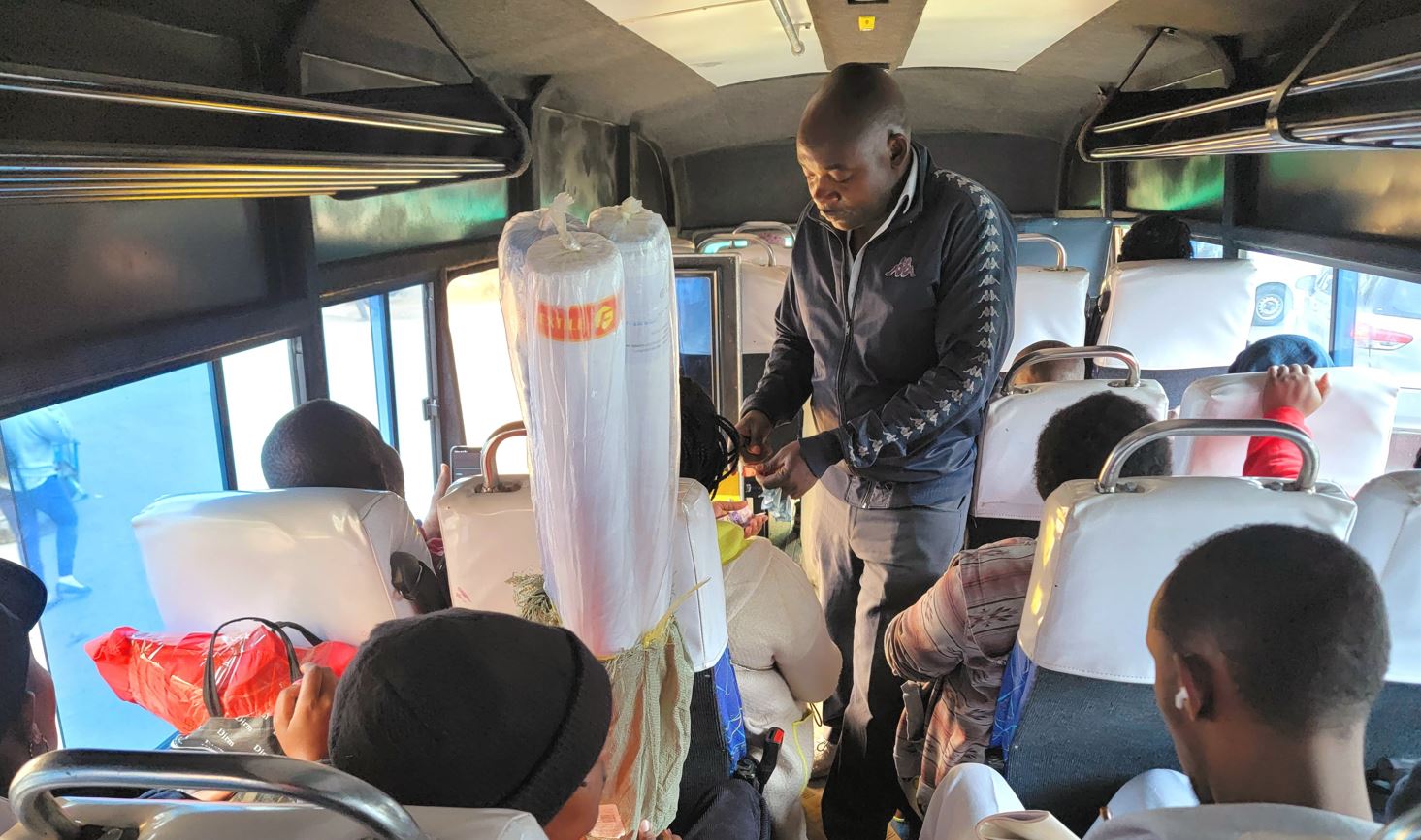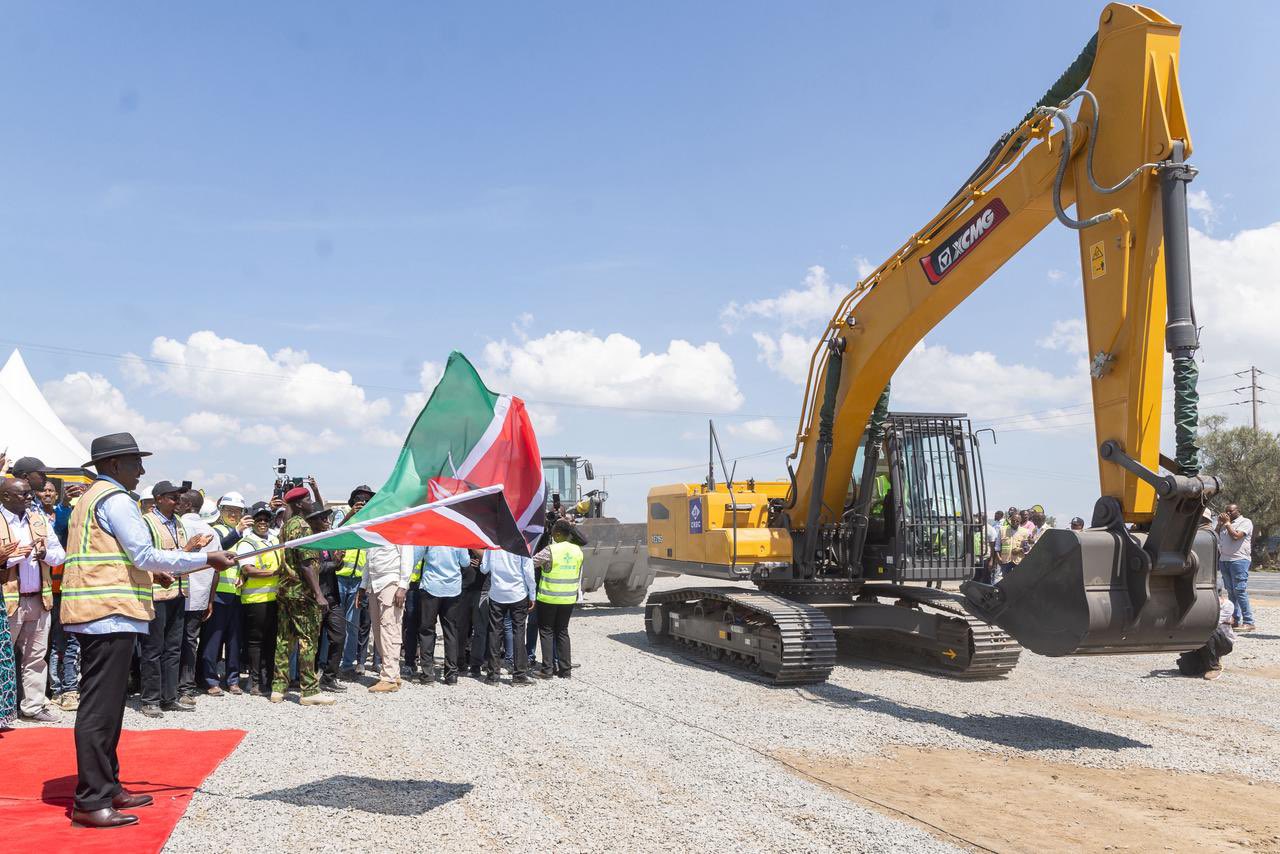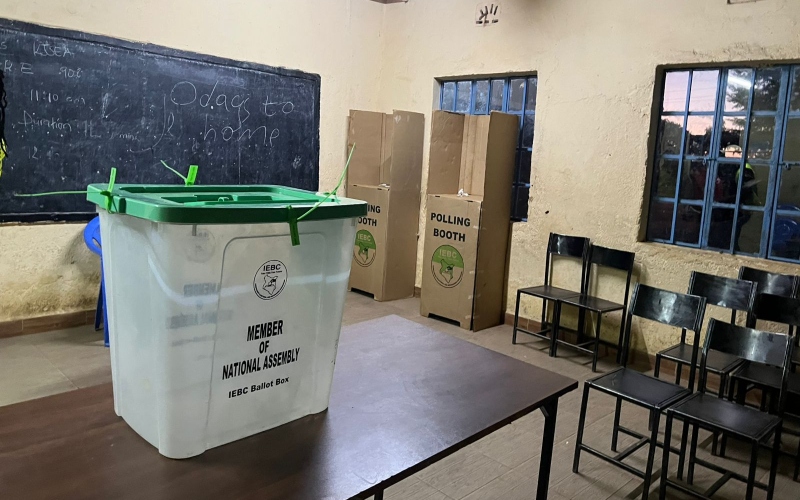How Nairobi commuters suffer from erratic fares as PSVs call the shots

Travellers have to often contend with arbitrary increases in charges by matatu operators, negatively impacting their monthly budgets.
In the busy streets of Nairobi, there exists a silent yet profound challenge that impacts millions: the unpredictable fluctuation of fares charged by public service vehicles.
From peak to off-peak travel, and depending on weather changes—especially when it rains—the cost of getting from one point to another fluctuates wildly, affecting the daily rhythms of commuters and challenging the economic stability of households.
More To Read
- 12 matatu Saccos sue Nairobi County over eviction from three petrol stations
- What to check before boarding a matatu: Commuters share key insights
- Matatu SACCOs to transform into transport cooperatives in new regulatory overhaul
- NTSA orders urgent PSV inspections over graffiti and safety violations, threatens penalties
- Motorists left stranded as court disputes paralyse Directline Assurance
- Business disrupted as Eastleigh matatu operators clash with hawkers
But what causes these fluctuations in public transportation fares and who is mostly affected?
A recent spot check by The Eastleigh Voice established that a majority of city commuters feel the pinch of the thriving ritual of unregulated fare hikes, a scenario they describe as exploitative and burdensome, severely impacting their daily budgets and overall financial stability.
For example, commuters travelling from Ngara to Juja said they normally pay Sh70 one way, though this may drop to Sh50 depending on the time of day. However, on certain days, the fares increase due to specific situations in the city, especially when it rains or during demonstrations.
On many occasions, the statements made by a conductor when passengers are boarding do not match their experience during payment.
A commuter who travels between Thika and Nairobi said that hiking fares has become a common trend. While the normal fare from the Nairobi CBD to Juja is usually Sh100, matatus and buses sometimes abruptly charge an extra Sh50 and passengers are only told about it after boarding.
Over five commuters using buses operated by one of the PSV saccos plying the Nairobi-Thika route complained to The Eastleigh Voice about the arbitrary fare hikes, noting that the situation is worsened by the arrogance conductors who sometimes even forcibly take phones from commuters who refuse to pay the extra charge.
In contrast, commuters on the same route who use buses operated by the Lopha Travellers Sacco expressed satisfaction with the fare ranges. Most of them said they had never experienced fare hikes even when it rains or when there is a scarcity of buses on the route.
"I have been commuting on Lopha Travellers since the beginning of the year and I have never experienced a fare hike," said Catherine Wambui, a frequent commuter.
To satisfy our curiosity about how this is possible despite the fluctuations in fuel prices over the past months, we sought to know from one of the sacco’s managers, who identified himself as Samuel, how they have managed to achieve this.
He said that their customers are their priority, and so they try as much as possible to maintain the fares constant, especially considering that Kenyans are going through hard economic times.
“We have a system to regulate the fare prices at all times, depending on the time our passengers are travelling. During the morning hours, the fare is always Sh100, at midday, we charge as low as Sh70, and in the evening, we revert to Sh100,” said Samuel.
Some commuters plying the Ngong Road route noted that fares were increased in 2022 due to a rise in fuel prices. Despite fuel prices consistently decreasing since then, the PSV operators have not lowered the fares.
“Sometime in 2022, I used to pay Sh50 from Nairobi CBD to Kilimani. When fuel prices went up the fares went up to Sh60 and never came down,” Grace Ndanu, a commuter, told The Eastleigh voice.
Other Topics To Read
Other commuters using Jogoo Road noted that at one point, the maximum fare charged for a trip to the city was Sh80 before the Energy and Petroleum Regulatory Authority (Epra) raised fuel prices. The fares then increased to Sh100 and have remained unchanged even after fuel prices were reduced.
A rough estimate of the monthly commuting cost for someone travelling from Ngara to Juja on regular fare charges is Sh6,000 for round trips. However, with the recent fare hikes, the monthly cost will increase to Sh7,150 if the fare is hiked for one week each month, requiring commuters to dig deeper into their pockets.
A commuter who spent Sh3,000 per month in 2022 travelling from CBD to Kilimani now spends Sh3,600. Meanwhile, those using Jogoo Road spent Sh4,800 per month before fuel prices increased, but they are now spending Sh6,000.
Speaking to The Eastleigh Voice, Matatu Owners Association of Kenya Chairman Albert Karakacha sought to explain why fares do not necessarily go down even after fuel prices are reduced.
"Regarding fares, we would like to inform our passengers that despite Epra lowering fuel prices, many enterprises did not reduce the prices of their commodities. These include tyre companies and spare parts retailers," Karakacha said.
He said the economic strain is felt not only by customers but also by matatu owners and appealed to commuters to be a little more patient as his association works with the government to ensure that prices are brought down as soon as possible.
Regarding the arbitrary fare hikes, Karakacha the association, has clear guidelines which matatu owners must follow to ensure commuters are not exploited.
"All matatus under our association must display prices clearly for customers to plan their budgets. If any customer has complaints, they should reach out to us at our offices on the 4th floor of Tumaini House," he said.
He, however, pleaded with the government to stop the implementation of the 25 per cent levy on fuel, saying it would affect the transportation sector and the commuters.
Despite a drop in fuel prices over the last six successive pricing cycles, commuters continue to pay high fares, denying them the much-needed relief that would have come with the drop in pump prices.
For instance, the price of diesel, widely used in the public transport sector, has dropped by about 12.2 per cent in the past six months, with a cumulative decrease of Sh25.09 per litre at the pump since November last year.
The energy regulator set the maximum price for the April-May cycle at Sh180.38. As of July 2024, following the review, pump prices for super petrol in Nairobi were set at Sh188.84 per litre down from Sh189.84, while a litre of diesel was priced at Sh171.6.
Top Stories Today
















































